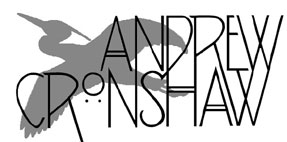
- Andrew Cronshaw website -
- Andrew Cronshaw MySpace -
- Cloud Valley Music website -
- Andrew Cronshaw website -
- Andrew Cronshaw MySpace -
- Back to Reviews Introduction page -
Written in
fRoots issue 192, 1999
MARIA KALANIEMI & ALDARGAZ
Ahma
RockAdillo ZENCD 2059 (1999)
HEIKKI LAITINEN, MARIA KALANIEMI, ANNA-KAISA LIEDES
Pidot
HecRec HRCD-111 (1998)
NIKOLAI BLAD
Nuoria Ja Kuluneita
EiNo EICD 5 (1998)
Ahma is the most impressive album yet from Kalaniemi and combo. In a set
of tunes, largely by her co-producer Timo Alakotila and herself with one each by
guitarist Olli Varis and his bassist brother Tapani, and a Cadicamo/Cobian
tango, the light-touched, perfectly-timed swirling grace-noting over a chordal
surge and ebb from her big chromatic button-accordion is surrounded by a
beautifully recorded rich, flowing texture of scampering fiddles, piano,
mandolin (the excellent Petri Hakala), guitars and double bass from the markedly
emboldened Aldargaz, with guest fiddles, cello, brass and reeds.
A new instrumental compositional style has been
evolving, particularly in the work of Kalaniemi and JPP (which is led by
Aldargaz members Alakotila and Arto Järvelä), based on the dance tunes of
pelimanni music but twisting them and bringing in tango and other influences to
make something if anything even more distinctively Finnish, a thing of winding,
complex tunes with unexpectedly-modulating chording. Ahma, as well as
reflecting Kalaniemi’s other directions, gives a more instrumentally varied view
of that style than JPP’s all-fiddle frontline.
This, her third album, is in general more
up-tempo than its predecessors, but the still quiet moments are still there. Her
playing is, as always, deft, well able to dazzle but doing it to point up and
articulate the melody, and throughout there’s an ever more assured arranging
hand and greater articulacy of playing from the band.
Pidot features Maria Kalaniemi too, but
using an instrument she doesn’t employ on her own albums, her voice. Entirely
vocal, this album isn’t of song in the usual sense. Made as part of an
extraordinary mixed-media combination of theatre, eating, visual art and vocal
sound by Kristiina Hurmerinta and theatre Peukalopotti, it’s an exemplar of
Finland’s liberatingly free passage between folk-art and performance-art. A
prime influence in opening this and other borders, and keeping them open by
constantly passing through them, is Heikki Laitinen, an immensely influential
figure among the musicians of today’s Finnish folk music evolution. Here he,
Kalaniemi and Anna-Kaisa Liedes explore and combine human vocal sounds,
muttering, grunting, cooing, ululating, whispering, singing and crying
rhythmically and arhythmically in a shifting polyphonic soundscape of
cross-cultural vocal language that’s independent of words and tune. If one
surrenders to Pidot (and receptiveness is admittedly probably more likely
when enveloped in a live event than at home with a CD) it at times touches a
deep emotional response, like the involuntary human empathic reaction to the
sound of desolate sobbing.
I was going to say that Nikolai Blad’s second
album for EiNo, Nuoria Ja Kuluneita (roughly, “The young and the
worn-out”), invites the listener back into the world of one of Finland’s most
inspired and witty artists, but in fact the first track is hardly the most
welcomingly accessible, a loose cacophony of voices, twittering bird-call toys,
shuffling percussion and chugging serpentine concertina over double bass.
Strange, colourful shambolic creativity of sound is the sort of thing Blad
revels in, and indeed the production values this time around are challengingly
eccentric, using the full low-tech possibilities of the “living museum of
recording technology” that is guitarist Jukka Orma’s Lenin Karma Totalsound
studio in the basement of the old cable factory in Helsinki.
But the man of the turtle-voice is a deceptively
skilled musician, making for his guitar, concertina and the conspiring musicians
- centrally long-time Blad-understanders mandolinist Jarmo Romppanen and
Aldargaz bassist Tapani Varis - melodies that breathe and turn, drawing on many
musical references, deconstructing them so that they’re never derivative (even
when using a Carlos Gardel tango), for his surreal and image-rich, but
matter-of-fact and never pretentious, lyrics. Of these he gives in the booklet
indications rather than translations... “I wear a Walkman radio. You show me a
silver mirror. You know we are strangers in the ant-village”.
It’s fair to say that faced with Blad even many
Finns scratch their heads, but he’s a refreshing, questioning delight and
liberator among musicians and songwriters, and like that of Kalaniemi, Laitinen
and others his work is an indicator of the healthy, cross-pollinating variety of
the emerging Finnish scene.
© 1999
Andrew Cronshaw
You're welcome to quote from reviews on this site, but please credit the writer
and fRoots.
Links:
fRoots - The feature and
review-packed UK-based monthly world roots music magazine in which these reviews
were published, and by whose permission they're reproduced here.
Kansanmusiikki-instituutti (Finland's national Folk Music Institute).
It's not practical to give, and keep up to date,
current contact details and sales sources for all the artists and labels in
these reviews, but try Googling for them, and where possible buy direct from the
artists.
Helsinki's Digelius Music
record shop is a great source of Finnish roots and other albums.
CDRoots.com in the USA, run by
Cliff Furnald, is a reliable and independent online retail source, with reviews,
of many of the CDs in these reviews; it's connected to his excellent online magazine
Rootsworld.com
For more reviews click on the regions below
NORDIC
BALTIC
IBERIA (& islands)
CENTRAL & EASTERN EUROPE, & CAUCASUS
OTHER EUROPEAN AMERICAS OTHER, AND WORLD IN GENERAL
- Back to Reviews Introduction page -